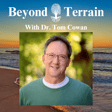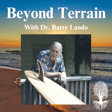Introduction and Podcast Overview
00:00:01
Liev Dalton
Welcome everybody to another episode of the Beyond Train podcast. I'm your host, Lee of Dalton. If you're new around here, consider following on the show, leaving a, maybe subscribing. If you're listening to on YouTube, give us a like, share, comment, review all that good stuff. If you find this informative sharing is always one of the best ways to support the show. So we really appreciate that.
Guest Introduction: Baird Smith
00:00:18
Liev Dalton
We have a great guest on today, talking about a topic I love movement. Um, we have Baird Smith. He is a fantastic mind. I think he takes a very.
00:00:27
Liev Dalton
healthy approach towards movement, really holistic approach too. So I'm really excited to kind of learn a little bit more about ah the method and the philosophy and and share it with you guys. So Mr. Smith, thank you so much for coming on today.
00:00:39
Barrett Smith
Oh, thanks for having me.
Defining Health through Adaptability and Movement
00:00:42
Liev Dalton
ah So the first question I asked all my guests is to get a little definition of health, and kind of a broad question. You can take it any direction that you'd like, but kind of just give us a little definition of what health is, you know, how it manifests stuff like that.
00:00:53
Liev Dalton
So I'm eager to hear your response.
00:00:55
Barrett Smith
Yeah. I mean, let's see here. What is health to me? Health is just overall being able to, uh, adapt to your situations, basically something called neuroplasticity, being able to change with the changing time. So.
00:01:07
Barrett Smith
I'd probably consider health being conscious about how we move, how we perform, as well as things that we eat. So overall quality of just overall human being would probably say I would be be most influenced by the word health kind of thing.
00:01:22
Liev Dalton
yeah Yeah, cool. I love it, man. Yeah, you know, one of the my favorite sayings is that um change is the only constant in nature.
00:01:33
Liev Dalton
You know what I mean? So there's this constant adaptability, like you're talking about, uh, neuroplasticity, such an interesting topic, right? Um, same with like epigenetics, you know, that our bodies are constantly adapting to our, to our surroundings.
00:01:46
Liev Dalton
So, um, you obviously are greatly sort of influenced by, uh, like activating the neural system and your method. Maybe like we could just kind of get a little introduction of, of your method.
00:01:57
Liev Dalton
What's it all about? You know, maybe even how you kind of came to this conclusion right or this kind of way of of thinking about it because it's unique. You don't see it too often. So I'm really, really excited to hear how that kind of happened.
Functional Neurology and Brain's Role in Movement
00:02:09
Barrett Smith
Yeah. So, uh, pretty much my background is in brain-based fitness, functional neurology, whatever you want to call it. But understanding that that three pounds of jelly that sits in your skull is controlling everything in our body from how we move to how we perform and even our emotions, our hormonal responses to thing. It's all controlled by that brain. Now, as weird as that sounds. So, uh, my background is going to be more of a Basically having a neuro lens on almost everything. So i've worked I've worked with athletes, I've worked with Parkinson's, I've worked with stroke, I've worked with PTSD, trauma, you name it. I have pretty much worked with it at this point, obviously muscle building and performance training and fat loss and all those things. but
00:02:51
Barrett Smith
understand that it's all about that three pounds of jelly that sits in your skull. We are all neurologists, whether we know it or not. If you move, you're a neurologist. So it's kind of weird to think about that, but we actually all are utilizing neurology on a day-to-day basis whether we know it or not.
00:03:09
Barrett Smith
ah So I look at, we have three different movement systems that I look at as well as different receptors. and The three movement systems we have proprioception, which is the brain's awareness of the body. So I always like to give the explanation of what that is, is think about your big toe on your left foot without looking at it.
00:03:26
Barrett Smith
You know where it is in space. That's proprioception. Now the next one's going to be what's called your vestibular system, which is something that probably some people don't know, but your vestibular system is your inner ear. So we have one on the left and one on the right. And then also our visual system. So our eyes have an actual huge impact on how we move. um Now, if we look at these, everybody needs to be able to do four things.
Integration of Sensory Systems in Sports Performance
00:03:49
Barrett Smith
Everybody needs to be able to see well, balance well, move well, and then most importantly, integrate those three things well.
00:03:56
Barrett Smith
So if I'm working with somebody, say a baseball player, for example, or some kind of athletic trainer, I'm sitting here going, okay, how can we work on these systems individually, but also how can we integrate them together to bring your performance to that next level within a matter of, you know, maybe even ah as little as one hour session.
00:04:17
Barrett Smith
So I have a big understanding of if our brain likes something, it's going to show us, we just got to know the signs. For me, it's always gait analysis, kind of looking at people walk. And then if we look at, I normally give people like their own assessments, if that's a range of motion, if they want to check a strength test, if they want to do a cognitive test, all sorts of things I've done where we've tested people's vision.
00:04:41
Barrett Smith
And we've done the Snellen chart, which is that big E chart. And did they jump lines down? Did they go from 2020 to 2015 to 2010 and be able to test those things? And it's like, Hey look, you just jumped two lines on a Snellen chart. That is a great reassessment. Like this is what's going to be homework for you that I want you to work on in between our sessions. Um, and basically being able to progress those. So that's kind of my background. I got into this stuff. Um, it's kind of funny. I had a feeling in this question was going to come up of how I got into it.
00:05:12
Barrett Smith
but it was mainly, I got in this to help myself. I got into this kind of ring because I had a lot of issues. I had, you know, playing football growing up. I had a few ring dingers, you know, all the fun things that we know um from that sport. ah So I wanted to get into this to make me a better person. And then it just kind of happened to spill over into what I do for a living ah kind of aspect. So first I got into it because of me, and then it just kind of rolled over to, you know, my clients and everything like that.
00:05:42
Liev Dalton
Yeah, that's so cool, man. i I love that. And I love the way you kind of conceptualize it too. Like it's so fascinating, something that, you know, we don't consider. And it's such like an obvious truth, right? That there's like this system in us that just controls. It's a part of everything. And to isolate that out of movement, right? Because you don't think about it when you're like, especially in like traditional bodybuilding. I remember back in the gym, you just focus on muscle. It's always just muscle repetition, repetition. Um, you know, so like, I feel like you know, there's, there's not much information about tying that in. So that's so cool. And tying in the, like the three systems that you're talking about, um, you know, like balance and, um, you know, understanding where your body is in time and space, it's so applicable to, you know, obviously every sport, but just like general life affairs as well.
Neurology-Based Methods for Improving Functions
00:06:31
Liev Dalton
Right. Like just kind of optimize in your life.
00:06:34
Liev Dalton
Um, sounds like there's quite a healing effect to this. You so you mentioned that you work a lot with like, you know, neurologically related, uh, disorders as well.
00:06:41
Liev Dalton
That's so cool. Maybe we could hear a little bit more about how that kind of ties into the health side of things.
00:06:46
Barrett Smith
Yeah, so like I've worked with, I'll give you like a few of people that I've worked with in the past. I had a guy one time, he had a stroke back in 90, I think it was like 96 that he had a stroke.
00:06:58
Barrett Smith
And he was actually became a physical therapist and he came to me and he was having lack of sensory in one hand compared to the other from the stroke and it's never been the same. And within probably a span of maybe five minutes, I was able to get his sensory of his hand back to even on both sides.
00:07:17
Barrett Smith
And it's and it sounds like it sounds like pretty intense stuff, but it's like for me it's more about understanding the neurology behind it. you know We build a big stack of ah peripheral nerve stimulus with some sensory stimulus as well as looking at the eyes and just built this big stack and all of a sudden that's what his brain was needing in order to kind of get that equilibrium between the sides again. I've also worked with you know pain management, stress management, all of those things. and it's If we look at it from a brain-based standpoint is understanding that sometimes we need to either reduce threat on the nervous system or we actually need to like basically increase threat depending on the individual that is standing in front of you. So you have to go through kind of a series of assess, reassess, like I said earlier and kind of figure out um what the actual nervous system is asking for that day. I've worked with another guy who had a stroke
00:08:12
Barrett Smith
He actually had a hemorrhage on that same side, almost killing that entire cortex out. um So he, him, it was a lot of vision and inner ear work as well as sensory work because we wanted to keep that part of the brain still active. um And there'd be times that like, it would legitimately take me an entire hour to figure out what his brain wanted that day. And it'd be like, as his wife is walking in, we found like stuff that worked for him that day.
00:08:39
Barrett Smith
Um, and we had great success with him. It was a lot of building giant stacks in order to get that response that we wanted from his nervous system. Um, and things like that. So it's like, I've also worked with, you know, athletics, you know, trained athletes because technically, like I've trained a lot of baseball players and I'm always asking them, like, is baseball a predictive or reactive sport? So it's a reactive sport. So I'm sitting here going, okay, you first have to see it.
00:09:08
Barrett Smith
So we worked on eyes quite a bit because first thing when it comes to reaction, if we want to think about speed is first, we have to see it. And then from there building off of that. Um, so it's all played around the nervous system. If you're a bodybuilder, you're training the nervous system. If you're an Olympic caliber athlete, you're training the nervous system. If you're trying to get the function out of your hand again from say having a stroke, you're utilizing the nervous system to make that stuff happen.
00:09:35
Barrett Smith
So but whenever I say like we're all neurologists, whether we know it or not, that's 100% accurate ah kind of thing. it's It's a weird concept, but it's like, it's true aspect of it.
00:09:46
Liev Dalton
That's so cool, man. Yeah. I like that saying too, we're all neurologists in a way, right? It gives us sort of that autonomy and expertise, right? We're all kind of experts in our own bodies as well. Right.
Varied Movement Goals and Training Approaches
00:09:56
Liev Dalton
Um, I love this, like what what you're saying, you explain it so very well too. And, um, there's a big attunement piece, which I think is like extremely important when it comes to any sort of healing, right? If you're going to work with someone, there's this attunement piece where you're looking at how they're showing up.
00:10:14
Liev Dalton
to you that day, which I think is so cool. Like what is the nervous system kind of going to allow you to do, right? And you kind of work with that.
00:10:20
Liev Dalton
So, um, I think that's absolutely fundamental in any sort of approach. Um, but yeah, it's, it's, it's so amazing. Like, uh, hearing about this stuff, you know, I guess we're, we're kind of working within the framework of the individual as well.
00:10:37
Liev Dalton
Kind of this attunement piece for goals, like goals, uh, looking at what good movement patterns are. So I'm curious, like, Like my thinking kind of leading me towards like, there's not like a set, like a set of good or perfect movement patterns, but rather what are the moving patterns and the goals you're trying to achieve? Does that make sense? Is that kind of, would you agree with that or?
00:10:58
Barrett Smith
Yeah, so like there's like in gait analysis, there's a handful of things that I'm really looking at. um But the easiest way to kind of think about Like my, my kind of standards is making sure that once again, that all three movement systems are communicating properly. And you can kind of see that in gate. There's a few things that you can look at and looking at, you know, different spinal tracks and all sorts of stuff like that. So you can look at, okay, if I'm seeing, you know, something over here, if I'm seeing more external rotation or internal rotation over here, I'm thinking, okay, part of the brainstem that's dealing with those functions is here, here, and here. I might want to check.
00:11:32
Barrett Smith
You know, those parts of the brainstem, how can we do that? We can look at cranial nerves, build a stack on top of that to where all of a sudden it's like, Oh, in that gait pattern, I see these things have changed within a matter of a few seconds. So that'd be like, basically, I always say homework, um, when it comes down to that. And then from there, basically, if we want to create that neuroplasticity or that brain change.
00:11:53
Barrett Smith
for the good because our brain is always constantly changing for good or for bad. It adapts to whatever stimulus is provided. It's called the said principle. It stands for so specific adaptation to impose demand. So our brain, our nervous system is adapting to whatever stimulus is provided. It doesn't know the difference between good or bad. So that's why people that sit in chairs all the time and they're like having office chair syndrome, you know, they have tight neck, their eyes always hurt, their necks always stiff, they have bad backs.
00:12:20
Barrett Smith
is because their brain goes, hey, this is the new norm, make this normal. Now, if we look at that from a neuroplasticity, we want to create those brain changes for good. So if somebody comes to me and they've had, you know, these issues forever, we got to tell the brain, hey, this is not right. Here's the things that we need to do in order to make this feel better. Now, on top of that, we have to do those drills or those homework exercises to reestablish and constantly remind the brain, hey, this is how it should be.
00:12:50
Barrett Smith
And then we build off of that. So in other words, we start off and it's like, I always give the example of neuroplasticity is think about how a road becomes a road. It's imagine there's a lot of vegetation out there. Now we haven't done anything yet. Then all of a sudden a mice, a mouse mice, a mouse runs through that forest and it creates a little hole. Now, if we don't do anything, like this is the first time you've ever done that exercise. Now, if we don't do anything, that vegetation is going to grow back over back to that normal position. But now all of a sudden that mouse run through and then all of a sudden say a Fox ran through that That's you working on your homework and now it's gotten even bigger. And then say a wolf runs through that, all of a sudden it's getting bigger. This is Azure working on it. So you're creating that neuroplasticity. And then eventually an elephant walks through and makes it to this giant hole. But if we, if we just stop there, all of a sudden that vegetation over time is going to get back. But then from here, we as human beings go, Hey, that's a road. Let's pave that and concrete it and make it permanent.
00:13:45
Barrett Smith
Now that doesn't mean that you should never revisit that exercise again, because still think about how we maintain roads. Every once in a while they come in and they cut the hedges and everything like that. We still have to do those things, but we have a good foundation of this is how it should be. It has corrected things. And then from there, we just kind of go in every once in a while and say, Hey, let's tune it up. Or let's make it more complex to where it gets our brain to focus on it again and basically make it to the next level. So neuroplasticity takes time, but at the same time, you can make big changes in a relatively small time, like show them like, Hey, you do this, it' it's going to start out this. And the next thing you know, it's going to build to this massive overall actually change within the nervous system.
Enhancing Cognitive Function via Movement
00:14:30
Liev Dalton
Yeah, it almost seems to me too, like you're kind of addressing like the root cause of things too, right? Like it's more like, um, you're not targeting like the muscles, right? It's not like you're looking at the muscles, right? Cause there's something that's controlling that, right? So you're going a little more, a little deeper than that. Um, obviously too, we're really close to cognition, right? Thinking the brain.
00:14:55
Liev Dalton
Does that come into this equation at all? You know, like thoughts, minds and stuff like that kind of just approaching it from, from there, because we're really closely related. I mean, the mind muscle connection is something that they even talk, like they talk about that and like bodybuilding, all that stuff. But I guess we're kind of, you're linking them together really well. So maybe we could speak a little bit about that.
00:15:14
Barrett Smith
Like when it comes to the mind, like understanding that, like I, I believe in basically cognitive training. So there might be times that if I'm working with somebody and say, I'm trying to improve their cognitive function, like while putting them under load while doing these things, like I have videos on my Instagram and you know, stuff like that in my YouTube channel of, you know, me personally doing stuff.
00:15:35
Barrett Smith
If I'm holding like an isometric squat, so I'm having to think about having to squat. Now I'm doing dual tasking, so I'm getting more of a cortical activation or a cognitive activation. And I'll have my wife be like, all right, categories, car, car brands. And I'm sitting there having to list out car brands while holding a squat with like however much weight on my back or in front of me. And I'm sitting there going, okay, I got to think while holding this muscle contraction. And this is creating more of that like neuro load, as you'd say, to where we're creating more plastic change from a different perspective. So we're getting more brain activation.
00:16:07
Barrett Smith
to where all of a sudden it's like your brain becomes more plastic. That means it's able to adapt to any kind of stimulus that you give it. So it basically makes it the more plastic your brain is. If you say were to have a you break your leg, for example.
00:16:21
Barrett Smith
you'd be able to recover faster than if you weren't as plastic, or if you have some kind of depression episode, you're able to recover faster. So that's the term like why we want to make our brain more plastic. So when it comes to neuroplasticity, there's cognitive function, there's actual like sensory function, there's movement function, there's different spinal tract function. So you can look at different spinal tracts, you know, ascending while as well as descending spinal tracts.
00:16:47
Barrett Smith
Then you can look at you know different parts of the brain, like, okay, we're looking at the cerebellum, we're looking at the parietal lobe, we're looking at the frontal lobe, we're looking at these things. Are we looking at the brainstem? Are we looking at you know those kinds of areas? And you can kind of figure out, okay, I know if I'm doing vibration, I know this is stimulating this spinal tract. Well, where does that spinal tract go to the spinal cord? does it Where does it cross the spinal cord to go to the opposite side cortex? Because we all know that sent all sensory inputs,
00:17:17
Barrett Smith
eventually goes to the opposite side cortex except smell. Um, or if we're thinking about moving up, moving my left hand, it's my right cortex that is activated. So that's kind of like, so you kind of think about like the roots kind of thinking about how to kind of almost be like Sherlock Holmes and figure out what's going on. What's the the mystery of why these things are happening. So you can start at like basically from the receptor level, if that sensation or whatever.
00:17:42
Barrett Smith
all the way up going through those things all the way to the actual cortex. Okay, I've noticed that you might be lacking sensation in whatever nerve if we're looking at say for example like the radial nerve backside of your hand that deals with wrist extension as well as elbow extension so tricep function. I know that you have a sensory deficit here I also know that you have lack, you have poor motor control. So we might stack those things together to where we really get that cortex firing to where all of a sudden it's like, Oh, Hey, now I can move my wrist. Oh, Hey, look at that. My muscle test got a lot stronger. Hey, my sensory test got a lot better. So it's all about just like, what does the brain want? Now, if we're thinking about this from say a, uh, bodybuilding perspective, like basically getting the muscles to contract, understanding that if I'm wanting to contract a muscle hard,
00:18:31
Barrett Smith
I first probably need to know where it is. So if I understand, okay, let's do some sensory work on a muscle before we go to contract it. Oh, Hey, I went from curling, say 30 pounds. I did some sensory work and now I can do 35s or 40s relatively easily because my brain is more familiar with that muscle. It's going to allow more strength activation because it's more comfortable with understanding where it is in space. Kind of thing.
00:19:00
Liev Dalton
Right on. Yeah. Well, each, each component has like a really big influence on, you know, on pretty well any example, right? I guess some, it's probably like, you know, maybe, um, in the case of bodybuilding, that proprioception factor might be more important than the vestibular factor, but there's still, I feel like a little bit of everything in every type of movement, right?
00:19:22
Liev Dalton
Um, it's really hard to kind of fully separate them out.
Movement's Role in Mental Health
00:19:25
Liev Dalton
Um, I'm really curious about your thoughts on like mental health type stuff, like healing, you know, like obviously movement is one of the best things for your mental health, right? Like I find we're in this epidemic where no one's moving, right?
00:19:38
Liev Dalton
We're sitting all the time. Um, we go from sitting to sitting to sitting, sitting throughout our day from work, breakfast, at you know what I mean? Like the tables, the couches.
00:19:48
Liev Dalton
So anyways, I'm really curious about your thoughts on like on the mental health component here, like, um Is there a connection at all um throughout like this way of explaining things? I'm sure there is, right?
00:19:59
Barrett Smith
Oh, yeah, absolutely. So um think of it like this. So I always say movement is medicine. I say movement is the currency of our brain. So we actually have two brains up up here, not like the whole gut brain and stuff like that. Think about the brains up the brains up here. So we have One called our first brain or old brain. Now, this is all of part of the brain that's all subcortical. So, cortical being like the two big cortexes that we all know, the two hemispheres. So, that's going to be our old brain or first brain. Now, this this part of our brain deals with like basically our autonomics. So, think about blood pressure, heart rate, breathing, um all of those things that make us survive. Its its sole purpose is survival. It's non-rational. I want to make sure that you live day to day, minute by minute, second by second.
00:20:45
Barrett Smith
Now we have something called the second brain or new brain. Now this is the actual two hemispheres that we know whenever we think about the brain. Now this area is kind of our cognitive executive function. This is our movement. This is like insert like your personality here. This is what makes you you you're you're thinking about others. You're thinking about how you interact with people all that kind of stuff. So that's kind of kind of more of the cognitive um area.
00:21:11
Barrett Smith
Now, if we don't move, understanding that movement is a huge cortex activation, more specifically what's called the frontal lobe. Now, if we look at basically the sole purpose, like one of the main things that our cortex does is it inhibits, this is going to sound weird. It inhibits old brain function. Now, if we look at certain things that we see nowadays, if we look at say depression, we look at anxiety, we look at you know, ADHD, we look at a lot of mental health issues. Those are all first brain or old brain, basically taking the reins of the horse kind of thing. Now, if we're not moving, we're not getting that new brain to inhibit old brain function. So that's why whenever we're moving and all of a sudden, like say we work out and we're like, man, I feel so much better today. It's because I have inhibited
00:22:06
Barrett Smith
those old brain responses that could possibly be leading to, okay, I'm having a history of depression, I'm having a history of anxiety, I have bipolarism, I have schizophrenia, you name it, like any kind of mental like health issue, like you can insert those things there. It also, you can insert pain there as well.
00:22:26
Barrett Smith
Um, so like, if we think of our brain as being a bucket, pretty much for a prime example, all of these stressors are going to go into this bucket, lack of sleep. Uh, you get in a fight with your significant other, you have stress at work, you're, you know, you're tire pops on your car or whatever, all these stressors go into this bucket. Now, before it gets to the top and spills out and goes everywhere and all of a sudden we just go crazy, think of it, there's a spout at the top. Now, whenever the spout opens, it's going to release this stuff out to kind of help ease it on the nervous system and and think of it as like, I always use pain as the example, most of the time it's going to be pain.
00:23:06
Barrett Smith
but can it be depression? Can it be basically anxiety to get you to do something else to make yourself feel better? Now, most of us, whenever we don't move, we're not getting those things and all of a sudden we just deal with this pain. So that's so whenever people get like super stressed out, all of a sudden they're like, oh, old injuries are starting to flare up again.
00:23:24
Barrett Smith
or I'm not sleeping as well. It's because I'm getting too much threat on the nervous system. So if we look at this from just a purely movement like thought process, don't think about like the neuro behind it or anything like that. Movement is medicine because we're reestablishing that, that basically that response of inhibiting that old brain function of Okay, I'm gonna have all these issues. Now, all of a sudden it's like that stress those threats, those stress starts going down again, and now all of a sudden I'm feeling better throughout the day kind of thing. So whenever I say like movement is medicine, it legitimately is. If that is eye movement, if that is inner ear movement, if that is just actual moving of my body. Now, all of those things have a big impact. So like whenever I'm saying like move, people need to move. We are a movement-based species.
00:24:15
Barrett Smith
Like we do, we actually really love complex movement. And nowadays we're sitting in a chair all day looking at a TV screen or a computer screen or a phone. And we wonder why we're having headaches. We're wondering why we're getting migraines. We're wondering why like, I just don't feel good all the time. I have no motivation. I have no, none of these things. Those are all kind of like that threat bucket being released, trying to deal with those stressors. That's that old brain taking the reins of the horse. Like I want to survive. Like these are the things that I've got to do to survive.
00:24:45
Barrett Smith
Basically. So when it, by moving, we're getting that up, that new brain to activate, to inhibit that old brain function. That was like a real quick, like kind of understanding behind it. There's a lot more that goes into it, but for right now to think we have two brains, old brain, think of autonomics, new brain, think what makes you you, if we don't move.
00:25:04
Barrett Smith
and we don't do stuff. A lot of times that old brain will take brains of the horse because it's thinking about stuff that it wants to survive. It thinks everything's trying to kill it and it's got to freak out. It's going to cause you to do stuff to kind of change your reaction. Now by getting movement in, we're reestablishing kind of that equilibrium between old brain, new brain function because it inhibits old brain function to where it's like, ah, I feel so much better. Oh, I can move. I'm not all, my muscles aren't tight all the time or I'm not having, you know, history of depression episodes or anxiety episodes.
00:25:35
Barrett Smith
So like I can't stress like how important movement is for us being a movement based species.
00:25:43
Liev Dalton
Yeah, that that's kind of a really cool way to explain it. Do you find that it's a similar explanation for like kind of trauma work and stuff like that for the the trauma connection is kind of similar, right?
00:25:52
Barrett Smith
What we still thinking about like trauma is kind of like a whole new realm, but it's like you can do a lot of movement stuff.
00:25:52
Liev Dalton
Yeah. Yeah. Cool.
00:26:00
Barrett Smith
You can do a lot of sensory stuff to kind of ease that. Um, I have worked with people that have had some pretty intense traumas. Like I take people through questionnaires and like I get to, you know, somebody's part of these questions. I'm like, if you don't feel comfortable answering these questions, you don't have, you just let me know, you know, kind of thing. Um, but most of the time people that come to me that are compromised like that, they've already seen a lot of individuals. Um, and sometimes I'm kind of like the last person in line, you know, kind of thing. So, um,
00:26:32
Barrett Smith
Like I've had, I had a lady one time, she was having like hamstring issues, like legitimately just hamstring issues. And she had some trauma going on in her life. And, um, she's been to, I think she's been to like a physical therapist. She's been to a chiropractic. She's been to like a medical doctor. She's been to like a neurologist and they're all like, you're fine. You're totally fine. And she's like, I have no idea why I'm hurting or why I'm doing all this stuff. I took a history on her, gave her one vision drill, one vision exercise, hamstring pain was gone. Like it's just.
00:27:00
Barrett Smith
Like those things all sound cool. Like, oh, it's amazing. But at the same time, it's all about understanding how the nervous system works. Everybody's different. There's no such thing as a cookie cutter diet when it comes down to the nervous system. Something that might work really well for you might actually hurt me and vice versa kind of aspect. It's like whenever you have to be like Sherlock Holmes, like you have to be Sherlock Holmes and figure it out.
00:27:23
Liev Dalton
Absolutely. Yeah. Yeah, that's cool. I'm drawing a lot of parallels. Like I'm a MDR train, so like eye movement, desensitization, rehabilitation, um obviously trauma centered, ah sorry, reprocessing, not rehabilitation.
00:27:40
Liev Dalton
um It's trauma, so ah you know, focused modality, right? Healing trauma using eye movements, um kind of like this bilateral stimulation, and a lot of language is very, very similar to what you're talking about right here.
00:27:52
Liev Dalton
um you know, like, uh, how, you know, we're trying to load the nervous system so that you're not actually going in and like talking about your trauma, right? You're not reliving anything, but you're, you're able to process it, you know, through eye movements or through some sort of bilateral stimulation.
00:28:09
Liev Dalton
Um, and you know, I've, when I was in my training, I ah drew a lot of parallels to movement as being like, you know, one of these loss things that actually just helps us manage, you know, our traumas, um, and sort of our, our histories, our experience, right?
00:28:24
Liev Dalton
Um, you know, I think that's one of the really the big missing pieces in today's day and age, uh, when it comes, like why we have this epidemic of mental health and, um, so many people suffering from, you know, their past and not being able to process these trauma naturally. You know, even with the bilateral stimulation, something as simple as going out for a walk kind of mimics that bilateral and you're getting this neural activation and, um, ability to kind of process these things, uh, very similar to how you're kind of explaining it. So.
00:28:54
Liev Dalton
Um, I think that's kind of an interesting parallel to all this as well. And like, you know, kind of a really good supplement for one another too, when it comes to healing, especially like from the mental, um, kind of like the mental health side, I think that's, that's amazing. Like it's, it's so interesting how, how tying it into movement, you know, can have this profound effect. So cool, man. So cool. So I guess maybe an interesting question would be what beyond like movement do you kind of do for like, is there anything aside from moving that kind of helps with this healing of the nervous system, this regulation of the nervous system? Can you go beyond health? Is there diet component stuff like that?
00:29:34
Barrett Smith
Oh yeah. Like, so whenever, if I'm working with somebody and we're trying to really, really get in tune, there's, There's a lot of things that we can look at. We can look at obviously movement being probably number one sensory, like basically probably sensory being number one. Cause if you look at how the brain's wired, sensory comes before motor. Um, that's why when somebody like you're working out and somebody's like poking on the muscle, you're like, Oh, all of a sudden I can fire it more kind of thing. Um, you you know, sensory component can be a huge impact on overall stuff.
00:29:59
Barrett Smith
ah We can also look at diet because if we think about how our digestive system is, like in a nutshell, think about digestion is, think about what our skin does for us. Our skin being our largest organ, it protects us for from the external environment. Will our digestive system think of it as being like it protects us from the internal environment? So we're putting foreign objects into our body, food.
00:30:22
Barrett Smith
Now our digestive system, like, yes, it's digesting it and giving us the, you know, proteins, fats, carbs, all the vitamins and minerals. But if we're putting in stuff that's doing more damage than good into our gut, then that could also lead to other things. So like one of my questionnaire things is like, all right, do you have, you know, how's your gut mobility? Uh, do you feel like you're having, you know, any history of GERD, uh, IBS, all that kind of stuff, because those are big, what's called intreoception activations.
00:30:50
Barrett Smith
Digestion being one of them, entry-oception, think of like everything from within. So like the best example would be like butterflies in your tummy. That's an entry-oception activation. Muscle contractions are um stuff that happens from within. So think of digestion as being it protects our insides from the outside as well, because we're putting foreign things in. So we have to be able to test the nervous system to see if we're getting the right you know sustenance into our body. So like for me, for example, I know that gluten doesn't really do well with me. I'm not celiac, but I have a sensitivity to gluten. Can I handle it? Yes. Am I comfortable eating it? No. I get super bloated, all sorts of stuff like that. Um, so I just avoid it all together. Every once in a while I might slip up and have it and it's just kind of like, okay, I'm going to go lay down for a little bit. But, um, with that being said, you got to test, you can test foods. There's all sorts of things that you can do for that. Um,
00:31:47
Barrett Smith
I normally teach people if that's one of the things that they're wanting to work on. I'm like, okay, here's how to test your nervous, here's how to test your autonomic response to food. Ideally we should see these things. Um, if, if you're not seeing those things, then it's probably not good, good foods for you kind of stuff. So if I'm looking at food, I'm looking at movement, I'm looking at sensory components, I'm looking, I'm looking at the body as a whole. Now what's controlling everything in the body?
00:32:14
Barrett Smith
Once again, it's going to lead back to that nervous system. Like I can't stress that enough is the nervous system controls all. It's constantly dealing with centuries to it, centuries away from it kind of stuff. So that ebb and flow between it. Now we got to start thinking about other things as well, but at the end of the day, it's all about that three pounds of jelly that sits in your skull. Like as weird as that sounds, no matter who you are, if you're wanting to be a better CEO,
00:32:40
Barrett Smith
If you want to learn how to do stuff, where is it at? It's the brain. If you wanted to be a better bodybuilder or a better athlete or a person that doesn't want to be in pain or a person that was able to you know digest food right and getting the right minerals and stuff like that, it's all about the nervous system.
00:32:57
Liev Dalton
I feel like there's this big component to all of this. That's like, you know, so it's tuning in with your own body, with yourself, right? Kind of this big, you know, one of the biggest, biggest maxims ever is know thyself, right?
00:33:10
Liev Dalton
This is like getting to know yourself on a very physical level.
00:33:13
Liev Dalton
Um, and that can lead to more, you know, internalized, um, exploration, right? And kind of getting to know yourself better and better. Like you're mentioning, you know, um, in tuning in with your own body, like realizing that there's a gluten sensitivity, although it might not be this overt intolerance or whatever, right? Like these subtle things that, that happened to us when you're really locked in tuning in with your body, you can kind of notice these things. Just get to know yourself even better how to perform optimally for, for what your goals are and your values. So, um, that's so cool, man. Like, like, I think that the self exploration piece is
Diet, Sensitivities, and Self-Awareness in Health
00:33:49
Liev Dalton
huge. Any, any thoughts on that?
00:33:51
Barrett Smith
I mean, like, yeah, it's just like, I mean, and that's the thing about like, um, you have to understand it's like, you got to learn how to see the signs and symptoms and stuff like that. And it's, and that's where I come into play. It's like, I'm not, I don't want to say I'm a movement specialist or a neuro specialist. I'm a habit coach.
00:34:09
Barrett Smith
i'm I'm a person that deals with creating better habits for individuals. If that's a movement habit, if if that's a digestion habit, if that's a breathing habit or whatever, it's all about creating good habits to make yourself better. we are a very like We're a movement-based species, but we do a lot of things through like habitual kind of stuff. um So like taking for like taking food, for example, when it comes down to it, I'll do like a you know dietary analysis on people, like ask them what they're eating,
00:34:39
Barrett Smith
And we're very, very habitual. We'll normally eat the same things over and over and over again, Monday through Sunday kind of stuff. Like your breakfast consists of always, for example, having eggs or something like that. But if we don't know if eggs are working well for your for your nervous system, maybe they they work great. Then it's like, okay, that's awesome. Or maybe they actually might be doing worse, more harm than good. Then we got to figure out what might be a good substitution for eggs or something like that. so It's all about just kind of figuring out like what works best for the individual. And it can can kind of be tedious because if we look at other things, like it's, it can be very, very tedious, but at the same time, once you start kind of figuring those things out, then it's like, Oh, I know that these certain things work really, really, really well for me, but these things don't. So I'm probably not going to look at these two too much. We'll probably focus on these things for the individual.
00:35:36
Liev Dalton
Yeah, like, um, there's this real scientific component to all this, right? There's testing, you were mentioning the test retest earlier, you know, kind of just, um, continuously assessing where you are kind of reassessing tuning into yourself, you know, looking for the signs, symptoms, stuff like that. Um, very like scientific approach I find. And, and I think that's, I think that is one of the best ways, even sometimes a little bit of trial and error, right? Figuring out what is going to work for you. Um, yeah, that's, that's great. Um,
00:36:05
Liev Dalton
The breath, you mentioned it briefly there. How how does that kind of come into the conversation with like tuning in and calming the nervous system, stuff like that?
00:36:14
Barrett Smith
So ah like one of the, one of the certs that I have is actually in breathing. And if we look at it from like, kind of, it's kind of like a double-edged kind of thing. So if we think about fuel sources, our brain runs off of two things. It runs off of ah oxygen and glucose. um Glucose being a digested version of carbohydrates. So carbs are good for you. Don't be, don't be scared of sugars um kind of thing.
00:36:38
Barrett Smith
But if we look at oxygen, that's kind of, that's where it kind of gets the weird um avenue. So if we look at it, we have O2 and then CO2. CO2 is actually more beneficial for us than we might think. A lot of people in today's and age have a couple problems as one, they're most likely hyperventilating. They're getting too much oxygen in the nervous system. um Our blood levels are already at around 100% between like 90 and 100% oxygenation. So we don't really necessarily need to get more oxygen in. um Sometimes now this is not for everybody. Like once again, like it depends it depends on the individual. um Sometimes looking at maybe increasing CO2 levels through possibly doing those certain types of breathing modalities, slowing down your breathing one.
00:37:26
Barrett Smith
maybe do some paper bag breathing, all those kinds of things, because what CO2 actually does for us for the nervous system, it actually helps transport O2 throughout the nervous system and also acts like a vasodilator. So we're getting more blood flow to basically damage tissues or anything like that. So if we look at breathing, that's normally one of the first things that I don't normally look at with people because A lot of people don't know how to breathe correctly. We've been taught how to eat. We've been taught how to drink water. ah We can go 40 something days without food. We can go two days without water, but we can only go minutes without air. But nobody has taught us how to properly breathe. um There's different ways to actually utilize the diaphragm. There's ways to use secondary muscles for inhalation as well as exhalation-based breathing. You can look at box breathing. You can look at, you know, Wim Hof. There's been research with him. um Wim Hof is kind of,
00:38:19
Barrett Smith
I don't 100% agree with it, but once again, it's each their own. If you feel like you benefit from that, dude, go for it, 100%. I have nothing wrong with that. um But if we're looking at it from a lot of people that I've worked with, it's more of and making sure that their nervous system is fueled, fueled being
Breathing Techniques for Health and Performance
00:38:37
Barrett Smith
actual food. And the next is actually good oxidation, CO2, O2, kind of equilibrium between them. So a lot of times the first thing I normally do is teach people how to breathe.
00:38:48
Barrett Smith
That way they're fueled for the workouts. They're fueled for whatever we're doing that day. I'm not worried about them crashing if we're looking at their eyes or anything like that.
00:39:00
Liev Dalton
Yeah, like, um, yeah, that's really cool. Yeah. A couple big, like ah the carb thing, I think is funny, right? Like carbs are obviously. Anyways, we don't got to dive into that, but I completely agree.
00:39:11
Barrett Smith
ah That's a whole new world.
00:39:13
Liev Dalton
Um, I've heard. Yeah. fineness Honestly. Um, there's so many little like, uh, mistruths out there that, that are, I don't know, it's funny. Even in the alternative health world, right?
00:39:25
Liev Dalton
It's kind of can be confusing sometimes discerning what is like, what's good information, what's not. I got into Wim Hof actually quite a bit. Um, and then I, I kind of had to like reopen my mind and say, okay, maybe this is an optimal for me, right?
00:39:36
Liev Dalton
Like respect, obviously to those who it works for limit with.
00:39:39
Barrett Smith
Oh, 100, like 100% like, no, like I have nothing wrong.
00:39:45
Barrett Smith
Like one, like I'm going to say this right now. It's like, I have nothing wrong with WinHoff. I have, there's like, there's been actual scientific evidence that it actually helps out with a lot of stuff. Do I think it's for everybody? No.
00:39:55
Barrett Smith
But at the same time, everybody's different. Is there going to be a lot of people that respond well to it? Yes, absolutely. But do I think it's for everybody?
00:40:02
Barrett Smith
No. Kind of thing.
00:40:04
Liev Dalton
Yeah, absolutely. Yeah. No, a hundred percent. That's it. Right. And that comes back to that attunement piece, right. And, um, really tuning in with the client and, you know, as yourself, right. An individual trying to tune in with yourself, right.
00:40:15
Liev Dalton
And learn more about yourself and what works, what doesn't.
00:40:18
Liev Dalton
So, um, and again, trial and error, like I did it for a while and then, you know, I was like, Yeah. I mean, it just, and I found other methods that I found just resonated more with me. So, um, yeah, just always about trying stuff out. What what I really liked about ah your approach is extremely holistic, right? Like looking at training things that like they're on the the micro scale or even like kind of, you can't see it, right? Like you can't see the nervous system. You can see your muscles, but you can't see the nervous system. Like, um, so like training these like subtleties, right? Um, even like the breath is not like.
00:40:53
Liev Dalton
something you think about like, Oh, I should train this, but it's very integrated into, um, you know, your movements, your performance, you know, whether, it when it comes to sports stuff like that, like I find like, let me get into tennis and my breath is absolutely everything.
00:41:07
Liev Dalton
Like when, if I'm serving, if my breath is off, forget about it, you know, but if I am breathing perfectly and I'm really locked in and tuned into that, that feeling, I'm not even thinking, right?
00:41:18
Liev Dalton
It's like, and then it's perfect. You know what I mean? And it's, it's that interesting, you know, kind of. attunement again with yourself, right? and And learn about yourself. Um, even things like, you know, training parts of your body that aren't, you don't, you don't think of like training your hands and your feet or your neck, things like that.
00:41:37
Liev Dalton
Like we kind of get neglected. Um, does that kind of tie into it too, right? These, these subtleties of the body, even with the shoulders, very delicate, you know, system, right?
00:41:47
Liev Dalton
I mean, the whole body is, but, um, yeah.
00:41:50
Liev Dalton
And it, can you speak on that any?
00:41:52
Barrett Smith
Yeah. So like one thing that I'm a big opponent of is, is like actually training your hands, like training your as I had like a little blister. This was from doing pull ups. So don't worry. I have nothing wrong. It's just, I'll use this hand. It doesn't have a mark. Um, but basically like training our hands, we have something called, there's there's a very, very interesting model out there called the homunculus, the homunculus. I'm saying that right. And it's basically a representation of what, how much brain space is devoted to each body part.
00:42:21
Barrett Smith
Now, if we think about it, there's a sensory one as well as a motor one.
00:42:24
Barrett Smith
Now, if we think about it, we're really, really entombed. Like our hands are really, really massive in this homunculus because we have to do very, very minute like movement patterns.
00:42:35
Barrett Smith
We have to be able to pick stuff up, be able to have a certain amount of pressure in order to hold it, all sorts of stuff like that. But we don't think about training our hands. We think about just hand training is, okay, I'm going to grab something and hold Well, what about doing like motions that are very complex and being able to work individual fingers or anything like that? That way we're actually getting more brain activation. So once I go back to that, you know, first brain, second brain, and the second brain's goal is to inhibit first brain problems. Maybe training your hands can actually have a big impact on doing that training your feet because we need to know where we are on the ground. It has a lot of what's called basically pressure receptors.
00:43:17
Barrett Smith
Borrow receptors. So we need to know how to hold the ground or basically touch the ground. What am I stepping on kind of thing? So like when it comes down to it, you look at our facial features. Like our tongue is relatively big because we have to be able to pronunciate, but we don't do any tongue training. Like all we do for tongue training is I'm just going to talk. Well, what about like tongue twisters? What about tongue circles? What about actually sticking your tongue out, pulling it back? What about holding it different positions?
00:43:46
Barrett Smith
These are great ways to think about it. Our eyes, we have to be able to have huge sensory receptors. Our eyes send ah our brain around 75 gigs of information per second. So it's like, if we think about it, our visual system out of, so if we look at our like ah sensory inputs, our brain does three things. It takes an inputs, it interprets those inputs and it creates an output. An output is basically like,
00:44:13
Barrett Smith
Like pain is an output, ah tight muscles are an output, depression is an output, all that kind of stuff. If we look at changing sensory inputs, our eyes, probably around 70 to 90% of all sensory inputs going to our brain is coming from our eyes alone.
00:44:29
Barrett Smith
So like, if we think about like the big areas that we don't necessarily think about, because everybody, whenever they want to work out, they want to have six packs, they want to have, you know, good chest, good broad shoulders, they want to have all these things. And that's great. That's understanding. That's unbelievably great. Do not get me wrong. Good. That's awesome. I want to I want to make sure you look good naked. Like, ah you know, that's that's the main goal. But I'm going to dabble into, hey, let's look at just, just in between sets. Let's look at maybe looking at some hand motions. Oh, hey, look at that. You got stronger.
00:44:58
Barrett Smith
Or, Oh, Hey, that looks more fluid or Hey, we're doing these things. And next thing you know, it's like, Oh, I can actually have better hand-eye coordination or whatever it is. Because if we, if we look at how much brain space is devoted to things, our hands are huge. Our feet are huge. Our facial features are huge, but we come into a day and age where we're sitting here going, Oh, I don't want wrinkles. I don't want all these kinds of like wrinkles to happen. And people are getting Botox and it's like, you're numbing big areas of our brain pretty much.
00:45:29
Barrett Smith
Now I'm not like anti Botox, like there, there has been some stuff like people that have, you know, trigeminal nerve issues or facial nerve issues. It's like, yes, if that helps with pain relief, that is awesome. That is great. But I don't think like, once again, it's not for everybody. I don't think people, you know, should be doing it on a day to day basis kind of thing. We're actually paralyzing a relatively big nerve that actually deals with muscles, a mastication that deals with facial features and all those kinds of things. We're supposed to have wrinkles.
00:45:58
Barrett Smith
Like I'm sorry to say we we age, it's part of life kind of thing. Don't be scared to have wrinkles. It's okay.
00:46:06
Liev Dalton
I agree. Yeah. They're having nice wrinkles around here and it just means you smiled lots.
00:46:10
Barrett Smith
Oh yeah. like I have on my forehead, I have on my neck, I haven't moved my, you know, crow's feet.
00:46:11
Liev Dalton
You know what I mean?
00:46:15
Barrett Smith
It's like, it's part of life. I'm getting older. I know I am. It's okay. It's okay to have wrinkles.
00:46:20
Liev Dalton
and very Yeah.
00:46:21
Barrett Smith
It's okay to have all these things happen to you. It's part of life.
00:46:25
Liev Dalton
Yeah. I love it. It sounds too like this, um, obviously would probably help a lot with like injuries, um, you know, rehabilitation,
The Brain's Trust in Body Movement
00:46:33
Liev Dalton
right? But. Even from a preventative standpoint, you know, training these systems likely high in like protecting from injury, right?
00:46:42
Barrett Smith
So like if we think about it, we, our brain has two, two goals or two jobs, pretty much the first one.
00:46:48
Barrett Smith
And this is the more important one is survival. Like I said before, it wants to make sure that we live every single minute, every single second, every single day kind of thing. And then the next one is movement. So we have survival, which is going to be kind of like threat reduction. And then we have movement, which is think of movement as what I said earlier, like the currency of our brain, the more our brain trusts us, the more it's going to allow us to do. If it doesn't trust you, you're sitting down doing nothing all the time. And all of a sudden you say,
00:47:16
Barrett Smith
I'm gonna start, you know, I'm just gonna go for like a five mile run out of nowhere. Your brain's gonna go, whoa, what the hell? And next thing you know, it's gonna be like, you're super sore. You probably got injured. Like you might have tore something, like all those things. That's your brain going, dude, pump the brakes, calm down. Like we're we're down for this, but it's like, dude, that's too much kind of thing. um So like thinking of it like that is like, okay, first job is survival, making sure that everything's running properly that we live in every single day. And then movement being number two.
00:47:45
Barrett Smith
and So like movement is just currency of the body. The more trust you, the more it's going to allow you to be able to do kind of thing. So if you look at like an Olympic caliber athlete, like a gymnastics, like gymnasts, they're going to be super flexible because their brain trust them with those ranges of motion. Now, if you looked at me trying to do the splits, it ain't pretty.
00:48:04
Barrett Smith
All right. um I don't train the splits. I don't want to train the splits, um but my brain's going, no no, no, no, no, no, don't do that. Don't do that. I'm going to make those adductors super tight to where you can't do that, you know, kind of thing, um because it doesn't feel safe in those things. Now, could I train the splits and eventually, you know, over time get there? Yes. 100%. But is it a goal for me and that I'm really like, I'm really passionate about it. I'm like, I'm okay with not being able to do the splits.
00:48:32
Liev Dalton
So cool, man.
Personalized Client Consultations
00:48:33
Liev Dalton
Yeah. So like, what does this session with you kind of look like? Like, what do you offer? Like, like our consultations, stuff like that. Like, what's it kind of look like?
00:48:42
Barrett Smith
So normally whenever I meet with somebody for the very first time, we sit down and I have the questionnaire that I take people through. Uh, if I take it through the full questionnaire, I think it's a little over a hundred questions and it's just yes, no questions. And if you say yes to it, it's kind of like just going into a little detail about you. So it's pretty much taking a history on them. I want to know from when they were born to the day that they walk into see me, and then obviously history is ongoing.
00:49:06
Barrett Smith
But I want to know everything that's happened in your life. I want to know about you know injuries. I want to know about concussions. I want to know about eating habits. I want to know about your stressors every single day and kind of so forth, so forth. I take them through and basically they answer all these questions and it kind of gives me an idea of where we can start depending on what their goals are. so Me being a trainer, it's like I always want to bring it back to always making sure that we are first and foremost, what are your goals? We want to work on those things. If that's fat loss, well, fat loss, if you think about it from a brain-based standpoint is your brain doesn't want to get rid of your fat. We have to trick it into getting rid of your fat. So one of the things that I like to work on is breathing. We don't necessarily burn fat, we actually exhale it off. And if we don't know how to breathe properly, we're already inhibiting our body's ability to get rid of it.
00:49:55
Barrett Smith
Um, so basically thinking about those fuel sources. Now, if they're coming to me for a muscle building, it's like, okay, well. If you want to build muscle, are you working only one type of muscle contraction? Are you actually looking at all three types of muscle contractions? Um, do you even know how to contract the muscle? All of those things. So that way we can kind of look at that. And on top of that, I noticed that, okay, you're lacking. I can see that you said a yes, a lot in these areas. So I might basically stack stuff within our session of saying like, Hey,
00:50:26
Barrett Smith
Let's just try a visual drill that I know hits these different parts or an inner ear drill that I know that hits these parts of say the brainstem. Okay. I'm going to assess them real fast. I'm going to give them their own assessment. If that's a forward fold muscle built, like a muscle test or whatever. And then we're going to try this drill out. And then all of a sudden it's like, Oh, I see that your gate got better. Okay. That muscle test, you got a lot stronger. Hey, I need you to work on that outside of our sessions. Kind of thing.
00:50:52
Barrett Smith
And then if they're trying to say build muscle or become stronger, all of a sudden within, you know, a session, they have may have gotten stronger within a few seconds. So like one of the things I always work with athletes is I always tell them like, you got to love instant strength. I've had people in the past come to me for like issues and like, they want to get stronger. I'm like, okay, let's look at this nerve. Like what, what do you want to become stronger? So for like baseball players, it's a lot of grip strength. So it's like, all right, let's look at, you know,
00:51:22
Barrett Smith
nerve mobility exercises or they want to get, you know, if you look at throwing, they have to think about the decelerating muscles. So like what are the main two decelerating muscles in a throw? It's going to be your lats and your tricep. There's also like rhomboids and other stuff that come into play. So it's like, we got to make sure that those muscles are relatively strong. Here's ways to do those on top of just doing lat pull downs and tricep extensions.
00:51:45
Barrett Smith
but actually taking the muscles through full ranges of motion of full contraction, full stretch. Now all of a sudden your brain's more aware. That's that proprioception mapping is more aware of it. So the less likelihood of injuries to happen actually happen.
Conclusion and Supporting Baird Smith
00:51:58
Barrett Smith
And then also what's happening is we're more aware of the muscle. The more our brain is familiar with it, the more it's going to allow us to do. So increase strength, increase throwing velocity, increasing whatever. um So it's always about getting the brain comfortable with whatever movement or whatever stimulus that we are providing for it.
00:52:18
Liev Dalton
Unreal. I love it. Probably good time to wrap it up. I want to hear some final thoughts on the episode, anything that you want to add that we might've missed. Now's the time.
00:52:26
Barrett Smith
Uh, no, not really. I'm just kind of just letting and you ask the questions and I'll answer them to my best of my knowledge. of thing
00:52:32
Liev Dalton
Cool, brother. That's awesome. um All right. How can the listeners support you? Where can they learn more from you do you? Do you offer training for the method itself, like for other people to kind of implement or?
00:52:43
Barrett Smith
Yeah, I mean, right now I'm in, I'm located in Dripping Springs, Texas. I work at a strength and conditioning gym here in Dripping Springs, um but I do offer virtual stuff, but you can find me on Instagram.
00:52:55
Barrett Smith
It's this Movement Coach Barrett, pretty simple. I am starting a YouTube channel. It's called the Movement Mindset. I just started it technically in October, but I'm really starting to kind of post on it just now. So if you want to follow me on there, I'll be posting shorts. I'll be posting videos there to kind of learn. And then you have any questions. If you follow me on Instagram, the movement coach Barrett, you can contact me through there and we can do everything that you want. ah Kind of like figure out what you want to do and stuff like that. But yeah, like once again, it's all about the nervous system. As weird as that sounds like I can't, I can't stress it enough um kind of thing, but yeah, that's where you can find me. ah Facebook, same thing. I mean, I'm on,
00:53:36
Barrett Smith
TikTok as well, but I don't know with the whole, what's going on with TikTok. It might be here. It might not be here for the States. So oh I'd say more Instagram and probably YouTube is probably where you could find me the most.
00:53:44
Liev Dalton
True enough. Yeah.
00:53:49
Liev Dalton
Oh, cool. Yeah. We'll put some links down below. So make it easy. Um, that's awesome, man. I'm looking forward to that, to delve it into your YouTube channel, learn a little bit more.
00:53:57
Liev Dalton
Yeah. Your videos ah are on Instagram instagram are awesome and like, I love it. I learned so much from you. So definitely recommend all listeners to make sure you follow them because, uh, like really informative stuff on when it comes to movement.
00:54:08
Liev Dalton
And as you know, I think we've exhibited. Kind of applies to more than just movement, right? It's a really holistic kind of thing to, you know, just better your life in general. So amazing brother. Thank you so much for your time for sharing all this wisdom. This has been an amazing episode.
00:54:23
Barrett Smith
Yeah, absolutely. I'm glad um glad to be here.
00:54:26
Liev Dalton
Cool. Yeah. I don't want to thank you all for listening. Uh, you should know that this is not medical advice or movement advice or in any shape or form, you know, this is for informational purposes only. um But also remember that we're all responsible, sovereign beings, capable of thinking, criticizing, understanding, absolutely anything. ah We, the people in the Greater Forester together, self-healer, self-governable self-governable, self-teachers, and so much more. Make sure to reach out if you have any questions, criticism, comments, concerns in order to find me over there on Instagram. All the links will be down below too. ah Love to hear your thoughts on the episode. And if you enjoyed it, of course, give us a follow or a
00:54:59
Liev Dalton
subscribe. That would be much appreciated as always. Sharon's one of the best ways to do that. But a like, comment, all this goes a long way. Just remember, there are two types of people in the world. Those believe they can, those believe they can't, and they are both correct. Thanks for listening, guys. Take care.

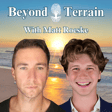

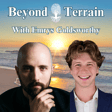
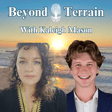
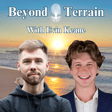
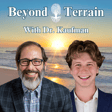


![DNA Doesn't Exist & Genomic Nonsense with Dr. Jerneja Tomsic [Part 2] image](https://media.zencastr.com/cdn-cgi/image/width=112,quality=85/image-files/652933f3a749dc383eb375de/ce5a5fd9-98c9-44fe-9b4b-3d0cd5abcf29.png)





